Standard Oil: Ascent And Assessment
Slide 1
Standard Oil:
Ascent and Assessment
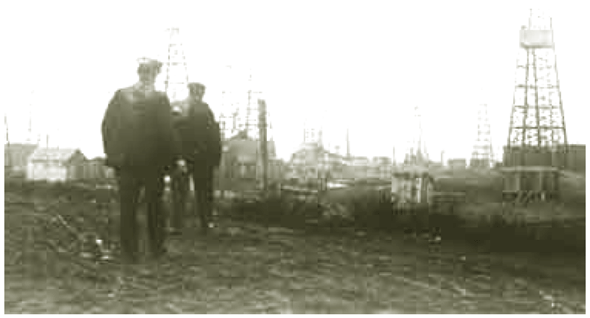
Slide 2
The Benefits of History
- Better Understanding of the Past on its Own Terms
- Better Understanding of Modern Economic and Legal Issues
- Point of comparison, contrast
- Source of useful additional questions, perspectives to consider
- Help to Inform Modern Decision Making
Slide 3
Perspectives and Insight
- Business Historians
- Legal Historians
- Intellectual Historians
- Economists
- Legal Scholars
- Other Scholars and Commentators
Slide 4
Earlier Antitrust Episodes in General; Standard Oil Story in Particular
- Great deal to tell us
- “Freedom from a falsely imagined past”
- Insight into how many of our current mainstream ideas first came to be established in antitrust law
Slide 5
- Simultaneously, insight into how
- Early antitrust thinking was not simply a less sophisticated early form of neoclassical economic thought;
- Variations from modern economic analysis found in earlier antitrust analysis do not simply reflect the power of “non-economic” concerns uninformed by any systematic theoretical outlook
Slide 6
- Much of early antitrust debate, legislation, lawyering, and judicial decision making was influenced by a different kind of theoretical outlook
That embraced as a part of, and not simply alongside of, its economic analysis,Simultaneous concerns for
Slide 7
- Individual Opportunity
- Freedom of Contract
- Efficiency
- Economic Progress and Prosperity
- Fair Distribution of Wealth and
- Political freedom;
All to be promoted through a process of largely “non-discretionary” judicial decision making
Slide 8
- Obviously, a more encompassing antitrust vision
- Contra more thorough-going modern belief in the “inevitability of tradeoffs”
Slide 9
Ascent and Challenge
Slide 10
- The Rise of Standard Oil
- Origins
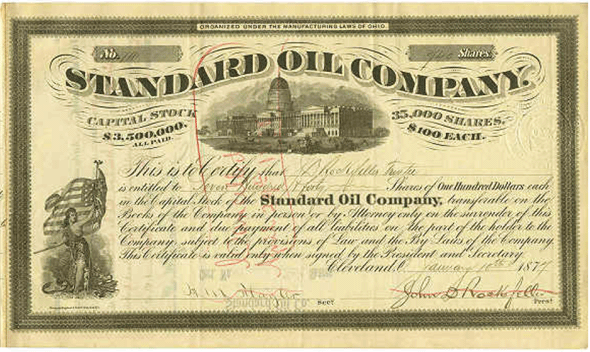
Slide 11
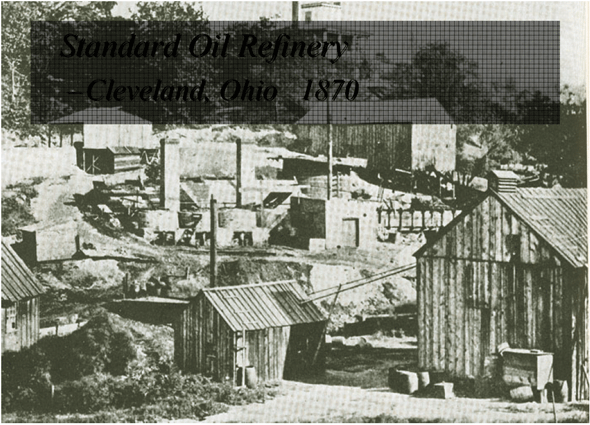
Slide 12
- Products
- Cartel Activity and Relations with Railroads
- The Cleveland Acquisitions
- Later Acquisitions
Slide 13
- The 1879 Trust
- The 1882 Trust
Slide 14
- Movement into Crude Oil Production
- Dominance in Pipe Line Transportation
- Expansion of Retail Marketing
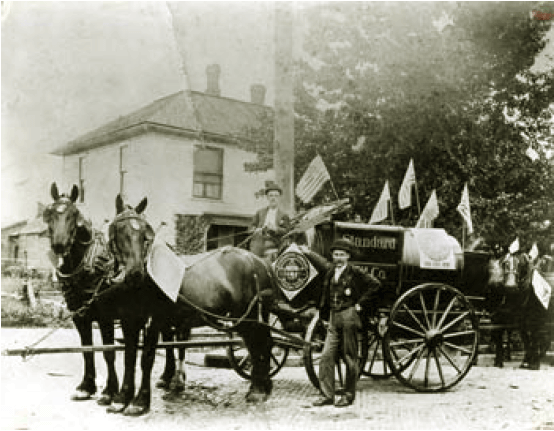
Slide 15
- Expansion of Product Offerings
- Dissolution of the 1882 Trust Under Ohio State Challenge
- Establishment of the Standard Oil Company of New Jersey as a New Jersey Holding Company
Slide 16
- Standard Oil’s Position – Export Trade
Slide 17
- Standard Oil’s Position – Domestic Trade
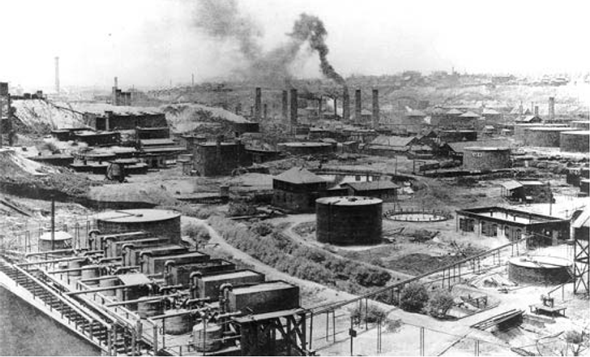
Slide 18
- The Federal Antitrust Challenge
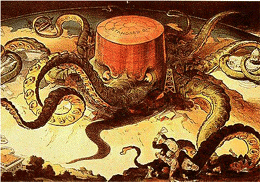 |
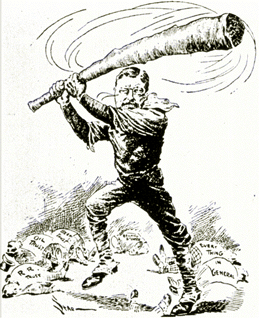 |
Slide 19
- Filed 1906
 |
 |
Slide 20
Position of the United States
|
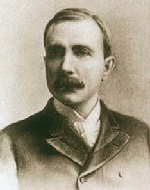 |
Slide 21
Position of the United States
- Evidence Stressed
- Acquisitions and Combination
- Market Shares
- Profits
- Increases in the Prices of the Principal Products
Slide 22
Position of the United States
-
- Other Means Used to Monopolize Commerce
- Railroad Rate Discrimination
- Control of pipe lines and pipe line discrimination
- Contracts with independent refiners
- Unfair competition ...
- Other Means Used to Monopolize Commerce
Slide 23
Position of the United States
- Unfair competition
- Local Price Discrimination/Predatory Pricing
- Secret market intelligence gathering and espionage
- Operation of secret bogus independent companies
Slide 24
Position of the United States
- The Trust Agreements of 1879 and 1882 were in unreasonable restraint of trade, tended to monopoly, and were void at common law
- The corporate combination achieved through the establishment of Standard Oil of New Jersey as a holding company was void under
- Sherman Act § 1
- Sherman Act § 2
Slide 25
Position of the United States
- Remedy
Slide 26



Slide 27



Slide 28
The Case in Hindsight
Slide 29
General Questions
- What was wrong and what was right about the government’s position?
- How might the case be approached differently today?
Slide 30
Scholarly Perspectives
- Remedy
- Was Standard Oil a monopolist?
- If so, what was monopolized?
- What were the Bases of Standard Oil’s Preeminence?
Slide 31
- Economies of Scale or Other Efficiencies
- Mergers and Acquisitions
- Uncoerced
- Coerced
- Bad Acts
- Predatory Pricing
- Other
- Enforcement of a Railroad Cartel
- Pipe Line Dominance
Slide 32
Questions and Implications


 U.S. Department
of Justice
U.S. Department
of Justice
